Discover a16z Podcast
a16z Podcast

a16z Podcast
Author: Andreessen Horowitz
Subscribed: 292,686Played: 2,618,942Subscribe
Share
© All rights reserved
Description
The a16z Podcast discusses tech and culture trends, news, and the future – especially as ‘software eats the world’. It features industry experts, business leaders, and other interesting thinkers and voices from around the world. This podcast is produced by Andreessen Horowitz (aka “a16z”), a Silicon Valley-based venture capital firm. Multiple episodes are released every week; visit a16z.com for more details and to sign up for our newsletters and other content as well!
543 Episodes
Reverse
Human nature fears the unknown, and with the rapid progress of AI, concerns naturally arise. Uncanny robocalls, data breaches, and misinformation floods are among the worries. But what about security in the era of large language models?In this episode, we hear from security leaders at OpenAI, Anthropic, and Google DeepMind. Matt Knight, Head of Security at OpenAI, Jason Clinton, CISO at Anthropic, and Vijay Bolina, CISO at Google DeepMind, are joined by Joel de la Garza, operating partner at a16z and former chief security officer at Box and Citigroup.Together, they explore how large language models impact security, including changes in offense and defense strategies, misuse by nation-state actors, prompt engineering, and more. In this changing environment, how do LLMs transform security dynamics? Let's uncover the answers. Resources:Find Joel on LinkedIn: https://www.linkedin.com/in/3448827723723234/Find Vijay Bolina on Twitter: https://twitter.com/vijaybolinaFind Jason Clinton on Twitter: https://twitter.com/JasonDClintonFind Matt Knight on Twitter: https://twitter.com/embeddedsec Stay Updated: Find a16z on Twitter: https://twitter.com/a16zFind a16z on LinkedIn: https://www.linkedin.com/company/a16zSubscribe on your favorite podcast app: https://a16z.simplecast.com/Follow our host: https://twitter.com/stephsmithioPlease note that the content here is for informational purposes only; should NOT be taken as legal, business, tax, or investment advice or be used to evaluate any investment or security; and is not directed at any investors or potential investors in any a16z fund. a16z and its affiliates may maintain investments in the companies discussed. For more details please see a16z.com/disclosures.
In recent years, the AI landscape has seen huge advancements, from the release of Dall-E 2 in April 2022 to the emergence of AI music and video models in early 2024.While creative tools often steal the spotlight, AlphaFold 2 marked a groundbreaking AI breakthrough in biology in 2021. Since its release, this pioneering tool for predicting protein structures has been utilized by over 1.7 million scientists worldwide, influencing fields ranging from genomics to computational chemistry.In this episode, DeepMind's VP of Research for Science, Pushmeet Kohli, and a16z General Partner Vijay Pande discuss the transformative potential of AI in scientific exploration. Can AI lead to fundamentally new discoveries in science? Let's find out. Resources: Find Pushmeet on Twitter: https://twitter.com/pushmeetFind Vijay on Twitter: https://twitter.com/vijaypandeLearn more about Google DeepMind: https://deepmind.googleRead DeepMind’s AlphaFold whitepaper: https://deepmind.google/discover/blog/a-glimpse-of-the-next-generation-of-alphafoldRead DeepMind’s AlphaGeometry: https://deepmind.google/discover/blog/alphageometry-an-olympiad-level-ai-system-for-geometryRead DeepMind’s research on new materials: https://deepmind.google/discover/blog/millions-of-new-materials-discovered-with-deep-learning/Read DeepMind’s paper on FunSearch, focused on new discoveries in mathematics: https://deepmind.google/discover/blog/funsearch-making-new-discoveries-in-mathematical-sciences-using-large-language-models Stay Updated: Find a16z on Twitter: https://twitter.com/a16zFind a16z on LinkedIn: https://www.linkedin.com/company/a16zSubscribe on your favorite podcast app: https://a16z.simplecast.com/Follow our host: https://twitter.com/stephsmithioPlease note that the content here is for informational purposes only; should NOT be taken as legal, business, tax, or investment advice or be used to evaluate any investment or security; and is not directed at any investors or potential investors in any a16z fund. a16z and its affiliates may maintain investments in the companies discussed. For more details please see a16z.com/disclosures.
Over 3,700 companies applied to a16z’s SPEEDRUN. In this episode, we meet the founders pushing the boundaries of what games can be.From the fusion of traditional gaming elements with modern tech-twists, a16z General Partner Andrew Chen and Partner Josh Lu discuss the challenges and wins of creating games that are not only fun but also integrate seamlessly into the digital age, from AI-twins to games that “move at the speed of culture”. Whether you’re a developer, an enthusiast, or just curious about the future of interactive entertainment, this episode provides a glimpse into how today's creators use creativity and technology to captivate.If you're passionate about shaping the future of gaming, consider applying for SPEEDRUN 3.0 at a16z.com/speedrun3. Resources: Submit your SPEEDRUN 3.0 application: https://a16z.com/speedrun-la-2024Find Andrew on Twitter: https://twitter.com/andrewchenFind Josh on Twitter: https://twitter.com/JoshLuLearn more about Avi and Magic Circle: https://twitter.com/aviromanoffLearn more about Lil Snack: https://www.lilsnack.coLearn more about Neon Wild: https://www.neonwild.comLearn more about Open Souls: https://www.opensouls.studioLearn more about Altera: https://altera.al Stay Updated: Find a16z on Twitter: https://twitter.com/a16zFind a16z on LinkedIn: https://www.linkedin.com/company/a16zSubscribe on your favorite podcast app: https://a16z.simplecast.com/Follow our host: https://twitter.com/stephsmithioPlease note that the content here is for informational purposes only; should NOT be taken as legal, business, tax, or investment advice or be used to evaluate any investment or security; and is not directed at any investors or potential investors in any a16z fund. a16z and its affiliates may maintain investments in the companies discussed. For more details please see a16z.com/disclosures.
Senator Todd Young (R-IN) speaks with a16z General Partner Martin Casado about the importance of open innovation and American leadership in AI, and why we need to support AI research at all levels — from the classroom to the war room.In this episode, we distinguish science fiction from science reality in the ever-evolving AI landscape. Resources:Find Senator Todd Young on Twitter: https://twitter.com/toddyounginFind Martin Casado on Twitter: https://twitter.com/martin_casadoWatch the American Dynamism stage talks on YouTube: https://bit.ly/3IqWn1WTo learn more about the American Dynamism Summit, visit our website: a16z.com/ad-summit Stay Updated: Find a16z on Twitter: https://twitter.com/a16zFind a16z on LinkedIn: https://www.linkedin.com/company/a16zSubscribe on your favorite podcast app: https://a16z.simplecast.com/Follow our host: https://twitter.com/stephsmithioPlease note that the content here is for informational purposes only; should NOT be taken as legal, business, tax, or investment advice or be used to evaluate any investment or security; and is not directed at any investors or potential investors in any a16z fund. a16z and its affiliates may maintain investments in the companies discussed. For more details please see a16z.com/disclosures.
The gaming industry stands as a pioneer of cutting-edge technologies, ushering in innovations like GPUs, virtual and augmented reality, physics engines, and immersive multiplayer experiences. In this episode, a16z cofounder Marc Andreessen and Andrew Chen, General Partner at a16z Games, dig into why a16z was compelled to establish a dedicated games fund. They explore the origins of tech pessimism, effective engagement with government in tech, its significance for the gaming community, the ongoing AI revolution, and even what Marc himself would build today if he didn't have his hands full. Recorded as part of a16z's extensive games fund accelerator, SPEEDRUN, this session offers valuable insights for founders and innovators at the intersection of games and technology. If you're passionate about shaping the future of gaming, consider applying for SPEEDRUN 3.0 at a16z.com/speedrun3. Resources: Find Marc on Twitter: https://twitter.com/pmarcaFind Andrew on Twitter: https://twitter.com/andrewchenSubmit your SPEEDRUN 3.0 application: https://a16z.com/speedrun-la-2024 Stay Updated: Find a16z on Twitter: https://twitter.com/a16zFind a16z on LinkedIn: https://www.linkedin.com/company/a16zSubscribe on your favorite podcast app: https://a16z.simplecast.com/Follow our host: https://twitter.com/stephsmithioPlease note that the content here is for informational purposes only; should NOT be taken as legal, business, tax, or investment advice or be used to evaluate any investment or security; and is not directed at any investors or potential investors in any a16z fund. a16z and its affiliates may maintain investments in the companies discussed. For more details please see a16z.com/disclosures.
From air-defining radar and electronic systems that helped the Allies win World War II, the origins of Silicon Valley are deeply rooted in government and defense.In today's episode, we get the chance to revisit that relationship with the United States Deputy Secretary of Defense, Kathleen Hicks.Deputy Secretary Hicks has spent decades of her career focused on defense policy and in her keynote address from a16z's second annual American Dynamism Summit in Washington, D.C., you'll get an inside look into the priorities of the DoD and how it views its past, present, and future.In the second half of the episode, you’ll hear highlights from Deputy Secretary Hicks' fireside chat with Wall Street Journal’s National Security Editor, Sharon Weinberger, where they dive into the numerous issues facing our country today, from Ukraine to the use of AI on the battlefield. Resources: Find Deputy Secretary Hicks on Twitter: https://twitter.com/depsecdefFind Sharon on Twitter: https://twitter.com/weinbergersaTo learn more about the American Dynamism Summit: www.a16z.com/ad-summitVisit the full playlist of American Dynamism Summit videos on YouTube: https://bit.ly/3IqWn1W Stay Updated: Find a16z on Twitter: https://twitter.com/a16zFind a16z on LinkedIn: https://www.linkedin.com/company/a16zSubscribe on your favorite podcast app: https://a16z.simplecast.com/Follow our host: https://twitter.com/stephsmithioPlease note that the content here is for informational purposes only; should NOT be taken as legal, business, tax, or investment advice or be used to evaluate any investment or security; and is not directed at any investors or potential investors in any a16z fund. a16z and its affiliates may maintain investments in the companies discussed. For more details please see a16z.com/disclosures.
“If America is going to be America in the next one hundred years, we have to get this right.” - Ben HorowitzThis week on “The Ben & Marc Show”, a16z co-founders Ben Horowitz and Marc Andreessen take on one of the most hot button issues facing technology today: tech regulation and policy.In this one-on-one conversation, Ben and Marc delve into why the political interests of “Big Tech” conflict with a positive technological future, the necessity of decentralized AI, and how the future of American innovation is at its most critical point. They also answer YOUR questions from X (formerly Twitter). That and much more. Enjoy! Resources:Watch full episode: https://youtu.be/dX7d6bRJI9kMarc on X: https://twitter.com/pmarcaMarc’s Substack: https://pmarca.substack.comBen on X: https://twitter.com/bhorowitzBen’s Article: “Politics and the Future” bit.ly/3PGKrgw Stay Updated: Find a16z on Twitter: https://twitter.com/a16zFind a16z on LinkedIn: https://www.linkedin.com/company/a16zSubscribe on your favorite podcast app: https://a16z.simplecast.com/Follow our host: https://twitter.com/stephsmithioPlease note that the content here is for informational purposes only; should NOT be taken as legal, business, tax, or investment advice or be used to evaluate any investment or security; and is not directed at any investors or potential investors in any a16z fund. a16z and its affiliates may maintain investments in the companies discussed. For more details please see a16z.com/disclosures.
From judging inventions on “Shark Tank” to reshaping the image of NBA ownership, Mark Cuban is known for many things. In this chat with a16z General Partner David Ulevitch, he discusses the importance of entrepreneurship for maintaining America’s status as the most innovative place on the planet. This includes making big bets, like he’s doing with Cost Plus Drugs, his latest venture that seeks to upend the prescription drug markets. Resources: Find Mark on Twitter: https://twitter.com/mcubanFind David Ulevitch on Twitter: https://twitter.com/daviduLearn more about the American Dynamism Summit: www.a16z.com/ad-summit Stay Updated: Find a16z on Twitter: https://twitter.com/a16zFind a16z on LinkedIn: https://www.linkedin.com/company/a16zSubscribe on your favorite podcast app: https://a16z.simplecast.com/Follow our host: https://twitter.com/stephsmithioPlease note that the content here is for informational purposes only; should NOT be taken as legal, business, tax, or investment advice or be used to evaluate any investment or security; and is not directed at any investors or potential investors in any a16z fund. a16z and its affiliates may maintain investments in the companies discussed. For more details please see a16z.com/disclosures.
At the a16z LP Summit, we brought hundreds of our limited partners and portfolio founders together in Las Vegas.The event was truly overflowing with stories of how founders are challenging the status quo and harnessing technology to make the world a better place. Amidst these stories, it became clear that in the realms of public safety and healthcare, the stakes couldn't be higher—these sectors not only hold lives in balance but also stand as fertile ground for technological breakthroughs.In this episode, a16z General Partner Vijay Pande chats with Ed and Todd Park, the visionary siblings behind Devoted Health. Their mission? To overhaul a healthcare system they describe as critically essential yet deeply flawed. The Park brothers delve into the genesis of their ambition to construct a healthcare system from scratch, underscoring the sector's urgent need for technological innovation and the game-changing role of AI.Kicking off with an American dream story, this episode is a must-listen for anyone interested in how technology can reshape healthcare for the better. Resources: Find Vijay on Twitter: https://twitter.com/vijaypandeFind Ed on Twitter: https://twitter.com/edparkdevotedFind Todd on LinkedIn: https://www.linkedin.com/in/todd-park-3232573Learn more about Devoted Health: https://www.devoted.com Stay Updated: Find a16z on Twitter: https://twitter.com/a16zFind a16z on LinkedIn: https://www.linkedin.com/company/a16zSubscribe on your favorite podcast app: https://a16z.simplecast.com/Follow our host: https://twitter.com/stephsmithio Please note that the content here is for informational purposes only; should NOT be taken as legal, business, tax, or investment advice or be used to evaluate any investment or security; and is not directed at any investors or potential investors in any a16z fund. a16z and its affiliates may maintain investments in the companies discussed. For more details please see a16z.com/disclosures.
Generative AI has initiated a transformative shift, reshaping our world in unprecedented ways. In a16z's AI Revolution series, we engage some of the most impactful builders in the field of AI discussing and debating where we are, where we’re going, and the big open questions in AI.In this episode, General Partner David George chats with Adam D'Angelo, the CEO and founder of Quora, wade into this fast-moving AI landscape, and specifically touch on how building infrastructure for creators can democratize AI. Adam, who is now building AI aggregator Poe and is on the board of OpenAI, has long been paying attention to this AI wave. He recounts this evolving fascination, and together Adam and David explore the dynamic synergy between humans and AI, highlighting the critical role of experimentation for founders in the AI realm.As a reminder, this conversation comes from our AI Revolution series, which you can dive into more deeply at a16z.com/ai. Resources:Watch the the full interview: www.a16z.com/AIRevolutionFind Adam on Twitter: https://twitter.com/adamdangeloFind David George on Twitter: https://twitter.com/DavidGeorge83 Stay Updated: Find a16z on Twitter: https://twitter.com/a16zFind a16z on LinkedIn: https://www.linkedin.com/company/a16zSubscribe on your favorite podcast app: https://a16z.simplecast.com/Follow our host: https://twitter.com/stephsmithioPlease note that the content here is for informational purposes only; should NOT be taken as legal, business, tax, or investment advice or be used to evaluate any investment or security; and is not directed at any investors or potential investors in any a16z fund. a16z and its affiliates may maintain investments in the companies discussed. For more details please see a16z.com/disclosures.
Nuclear energy accounts for 20% of the electricity in the United States, but remarkably, 2023 marked the commissioning of the U.S.'s first new nuclear reactor in over three decades. The past few years have been a story of changing public opinion, but equally, innovative startups crafting groundbreaking reactor designs and an ambitious announcement by the U.S. government to triple nuclear power production by 2050.In this episode recorded at a16z’s American Dynamism Summit in Washington DC, a16z podcast host Steph Smith is joined by a16z General Partner David Ulevich, Doug Bernauer – CEO of microreactor company Radiant – and Dr. Kathryn Huff, Assistant Secretary of the Office of Nuclear Energy.From energizing the country's data centers to propelling the electric vehicles on our roads or powering the factories crafting tomorrow's innovations, they discuss why expanding our nuclear capacity is a national imperative. Stay tuned for more exclusive conversations from a16z's second annual American Dynamism Summit in Washington DC. Topics Covered: 00:00 - The Promise of Advanced Nuclear Reactors03:43 - Nuclear Energy's Current Landscape07:00 - Vulnerabilities in Fuel Delivery10:30 - Nuclear Energy's Timeline12:11 - Portable Microreactors and Mass Production 15:06 - Nuclear Energy's Role in America21: 24 - Government's Role in Nuclear Energy26:08 - Challenges of Portable Micro Reactors 30:03- The Evolution of Nuclear Reactors32:11 - Nuclear’s Public Perception and Safety39:21 - The Global Need for Nuclear Power Resources:Learn more about American Dynamism Summit 2024: www.a16z.com/adsummitFind Dr. Kathryn Huff on Twitter: https://twitter.com/katyhuffFind Doug Bernauer and Radiant on Twitter: https://twitter.com/radiantnuclearFind David Ulevitch on Twitter: https://twitter.com/davidu Stay Updated: Find a16z on Twitter: https://twitter.com/a16zFind a16z on LinkedIn: https://www.linkedin.com/company/a16zSubscribe on your favorite podcast app: https://a16z.simplecast.com/Follow our host: https://twitter.com/stephsmithioPlease note that the content here is for informational purposes only; should NOT be taken as legal, business, tax, or investment advice or be used to evaluate any investment or security; and is not directed at any investors or potential investors in any a16z fund. a16z and its affiliates may maintain investments in the companies discussed. For more details please see a16z.com/disclosures.
Artificial intelligence has taken the world by storm. But despite the hype around personalized avatars or podcast language translation, artificial intelligence is not only impacting the creative spheres; in fact it’s hard to find an industry that isn’t being touched by this technology – and defense of our country is far from excluded.In this episode, originally recorded in the heart of Washington DC this January during a16z’s American Dynamism Summit, a16z General Partner Martin Casado and a16z enterprise editor, Derrick Harris are joined by the first-ever CTO of the CIA, Nand Mulchandani.In this wide-ranging conversation, they discuss the evolving relationship between analysts and AI, how governments can keep up with this exponential technology, and finally, how it’s impacting both offense and defense. This episode is essential listening for anyone interested in the intersection of technology, national security, and policy-making in the age of artificial intelligence. Stay tuned for more exclusive conversations from a16z's second annual American Dynamism Summit in Washington DC. Topics Covered:00:00 - Intelligence in the Age of AI02:28 - Rethinking Jobs and AI's Asymmetric Power05:00 - The History of AI in the Intelligence Community07:00 - Operational Utilization of AI10:40 - Analytic Capabilities and Uncertainty12:56 - AI's 'Hallucination' Concerns16:37 - Analyst Skill Sets and AI Tools26:29 - Supply Chain and Open Source31:35 - Public-Private Partnerships41:33 - Government as a Customer and Partner in Tech42:43 - Policy, Technology, and Regulation ResourcesLearn more about AD Summit 2024: www.a16z.com/adsummitWatch all of the stage talks at AD Summit 2024: https://www.youtube.com/playlist?list=PLM4u6XbiXf5pAKmk1AeZ9964KGScf4lHMRead the CIA’s announcement around the new CTO role: https://www.cia.gov/stories/story/cia-names-first-chief-technology-officer/Find Nand Mulchandani on Twitter: https://twitter.com/nandmulchandaniFind Martin on Twitter: https://twitter.com/martin_casadoFind Derrick on Twitter: https://twitter.com/derrickharris Stay Updated: Find a16z on Twitter: https://twitter.com/a16zFind a16z on LinkedIn: https://www.linkedin.com/company/a16zSubscribe on your favorite podcast app: https://a16z.simplecast.com/Follow our host: https://twitter.com/stephsmithioPlease note that the content here is for informational purposes only; should NOT be taken as legal, business, tax, or investment advice or be used to evaluate any investment or security; and is not directed at any investors or potential investors in any a16z fund. a16z and its affiliates may maintain investments in the companies discussed. For more details please see a16z.com/disclosures.
The last few decades have been a period of transition for defense. An increasing number of startups have begun to rival large defense primes, the industry has gradually become a calculus of both hardware and software, and exponential technologies have forced the DoD to rethink how it has traditionally done business.These changing conditions were some of the inputs to resulting in the DIU – Defense Innovation Unit – starting in 2015 within the Department of Defense, focused on accelerating the adoption of technology.In this episode recorded at a16z’s American Dynamism Summit in January, a16z General Partner Katherine Boyle is joined by the Director of the DIU, Doug Beck, plus two critical founders ushering in this new era of defense: Brian Schimpf, cofounder and CEO of Anduril and Brandon Tseng, cofounder of Shield AI.So what does the next wave of defense innovation really look like? Let’s find out. 00:00 - The Future of Defense Innovation 03:30 - The Defense Innovation Unit (DIU)05:45 - Adoption of Startup tech by the DoD07:42 - Acquisition, Budgeting, and Contracting13:17 - Traditional Primes vs Startups14:25 - Cost-Plus Fixed Fee Contracts20:11 - The Replicator Program22:26 - The New Threat Environment27:11 - Scale and Readiness for Modern Warfare32:15 - Procurement Reform and Feasibility39:30 - Success Metrics for Defense Resources:Learn more about AD Summit 2024: www.a16z.com/adsummitWatch Brian’s stage talk at AD Summit 2024: https://a16z.com/securing-americas-future-how-technology-companies-and-washington-are-building-a-safer-world/Watch all of the stage talks at AD Summit 2024: https://www.youtube.com/playlist?list=PLM4u6XbiXf5pAKmk1AeZ9964KGScf4lHMFind Katherine on Twitter: https://twitter.com/KTmBoyleFind Brandon and Shield AI on Twitter: https://twitter.com/shieldaitechFind Brian on Twitter: https://twitter.com/schimpfbrianFind Doug and the DIU on Twitter: https://twitter.com/diu_x Stay Updated: Find a16z on Twitter: https://twitter.com/a16zFind a16z on LinkedIn: https://www.linkedin.com/company/a16zSubscribe on your favorite podcast app: https://a16z.simplecast.com/Follow our host: https://twitter.com/stephsmithioPlease note that the content here is for informational purposes only; should NOT be taken as legal, business, tax, or investment advice or be used to evaluate any investment or security; and is not directed at any investors or potential investors in any a16z fund. a16z and its affiliates may maintain investments in the companies discussed. For more details please see a16z.com/disclosures.
American Dynamism. A term coined by a16z General Partner, Katherine Boyle, two years ago, when she and David Ulevitch founded the firm's American Dynamism investing practice.Beyond a sector or movement, American Dynamism embodies innovation, community, and a unique philosophy touching every facet of American life.In this episode, we hear from 10 voices, including policymakers, founders, and funders, as they share what American Dynamism means to them. They discuss the critical technologies shaping the future and the challenges on the path to the next decade of dynamism. Stay tuned for more exclusive conversations from a16z's second annual American Dynamism Summit in Washington, D.C. Resources: Find Dr. Kathryn Huff on Twitter: https://twitter.com/katyhuffFind Nand Mulchandani on Twitter: https://twitter.com/nandmulchandaniFind Doug Beck and the DIU on Twitter: https://twitter.com/diu_xFind Mitch Lee on Twitter: https://twitter.com/dontmitchFind Ian Cinnamon on Twitter: https://twitter.com/IanCinnamonFind Doug Bernauer and Radiant on Twitter: https://twitter.com/radiantnuclearFind Chris Bennett on Twitter: https://twitter.com/8ennettFind Mike Slagh on Twitter: https://twitter.com/MikeSlaghFind Rahul Sidhu on Twitter: https://twitter.com/rahoolsidooFind Wyatt Smith on Twitter: https://twitter.com/wyatt_h_smithLearn more about American Dynamism: https://a16z.com/american-dynamism Stay Updated: Find a16z on Twitter: https://twitter.com/a16zFind a16z on LinkedIn: https://www.linkedin.com/company/a16zSubscribe on your favorite podcast app: https://a16z.simplecast.com/Follow our host: https://twitter.com/stephsmithioPlease note that the content here is for informational purposes only; should NOT be taken as legal, business, tax, or investment advice or be used to evaluate any investment or security; and is not directed at any investors or potential investors in any a16z fund. a16z and its affiliates may maintain investments in the companies discussed. For more details please see a16z.com/disclosures.
You might recognize the name Mark Pincus but we almost guarantee you recognize the game Farmville. Mark Pincus is the founder and longtime CEO of Zynga, known for its massive global franchise of games, including those household names like Farmville and Words with Friends. Zynga was also at the forefront of the transition to mobile and the use of large platforms like Facebook for distribution.In this episode Mark joins Josh Lu from the a16z Games team for a fireside chat. They discuss navigating major tech waves and recognizing "true signal" opportunities, and explore a wide range of topics, from the strategic insights that propelled Zynga to success, the future of the Metaverse, and the philosophy behind minimum viable products. This conversation offers invaluable insights for both gaming industry insiders and enthusiasts looking to understand the dynamics of tech innovation and entrepreneurship.Topics Covered:00:00 - How Zynga Spotted the Mobile Wave02:47 - Challenges of Starting Zynga05:24 - Zynga's Early Workforce and Learning HTML07:40 - Preparing for Tech Waves11:29 - The Importance of Being Too Early15:42 - The attribute of great founders18:33 - Hiring Philosophy 22:02 - ‘Everyone is a CEO’24:20 - Fast Iteration and Learning from Failures31:06 - Personal Gaming Preferences32:52 - Advice on Reevaluating Projects and True Signal35:50 - AI's Role in Consumer Adoption and Gaming40:17 - Community as a Core Element43:31 - UGC Gaming Space and Future Computing ParadigmsResources: Find Mark on Twitter: https://twitter.com/markpincFind Josh on Twitter: https://twitter.com/joshluLearn more about SPEEDRUN 3.0: https://a16z.com/speedrun3Learn more about SPEEDRUN: ttps://a16z.com/speedrun-your-gaming-startupStay Updated: Find a16z on Twitter: https://twitter.com/a16zFind a16z on LinkedIn: https://www.linkedin.com/company/a16zSubscribe on your favorite podcast app: https://a16z.simplecast.com/Follow our host: https://twitter.com/stephsmithioPlease note that the content here is for informational purposes only; should NOT be taken as legal, business, tax, or investment advice or be used to evaluate any investment or security; and is not directed at any investors or potential investors in any a16z fund. a16z and its affiliates may maintain investments in the companies discussed. For more details please see a16z.com/disclosures.
In early 2024, the notion of high fidelity, believable AI-generated video seemed a distant future to many. Yet, a mere few weeks into the year, OpenAI unveiled Sora, its new state of the art text-to-video model producing videos of up to 60 seconds. The output shattered expectations – even for other builders and researchers within generative AI – sparking widespread speculation and awe.How does Sora achieve such realism? And are explicit 3D modeling techniques or game engines at play?In this episode of the a16z Podcast, a16z General Partner Anjney Midha connects with Stefano Ermon, Professor of Computer Science at Stanford and key figure at the lab behind the diffusion models now used in Sora, ChatGPT, and Midjourney. Together, they delve into the challenges of video generation, the cutting-edge mechanics of Sora, and what this all could mean for the road ahead.Resources: Find Stefano on Twitter: https://twitter.com/stefanoermonFind Anjney on Twitter: https://twitter.com/anjneymidhaLearn more about Stefano’s Deep Generative Models course: :https://deepgenerativemodels.github.ioStay Updated: Find a16z on Twitter: https://twitter.com/a16zFind a16z on LinkedIn: https://www.linkedin.com/company/a16zSubscribe on your favorite podcast app: https://a16z.simplecast.com/Follow our host: https://twitter.com/stephsmithioPlease note that the content here is for informational purposes only; should NOT be taken as legal, business, tax, or investment advice or be used to evaluate any investment or security; and is not directed at any investors or potential investors in any a16z fund. a16z and its affiliates may maintain investments in the companies discussed. For more details please see a16z.com/disclosures.
The electric grid needs an update. In this explainer, a16z Partner Ryan McEntush discusses the escalating complexity of the grid, unveils its vulnerabilities, and traces the evolutionary path that has led us to this point. From the surging demands of AI to outdated infrastructure, we delve into the potential roles of cutting-edge technologies such as solar batteries, natural gas, and nuclear power in shaping the grid's future.Timestamps:(00:00) - Introduction(02:28) - The Need for Grid Modernization(04:43) - Understanding the Grid's Operation and Challenges(06:47) - The Complexity of Grid Management(08:31) - Increasing Outages and Volatility(11:49) - The Role of New Technologies(17:53) - The Potential and Limitations of Renewable Energy Sources(19:08) - Energy Storage Solutions(24:57) - The Future of Natural Gas and Nuclear Power(29:46) - The Impact of Policy on the Grid(31:47) - The Concept of a Smart Grid(34:04) - Decentralization of the Grid(36:57) - The Role of the Free Market in Grid ReliabilityResources: Find Ryan on Twitter: https://twitter.com/rmcentushRead Ryan’s latest articles: https://a16z.com/author/ryan-mcentushStay Updated: Find a16z on Twitter: https://twitter.com/a16zFind a16z on LinkedIn: https://www.linkedin.com/company/a16zSubscribe on your favorite podcast app: https://a16z.simplecast.com/Follow our host: https://twitter.com/stephsmithioPlease note that the content here is for informational purposes only; should NOT be taken as legal, business, tax, or investment advice or be used to evaluate any investment or security; and is not directed at any investors or potential investors in any a16z fund. a16z and its affiliates may maintain investments in the companies discussed. For more details please see a16z.com/disclosures.
"The Ben & Marc Show" features a16z's co-founders Ben Horowitz & Marc Andreessen. In this episode, Marc and Ben continue their in-depth exploration of the current education system. While Part I of their discussion unpacked the crisis facing higher education, Part II presents solutions to overhaul the modern university.In this one-on-one conversation, Ben and Marc delve into actions that existing institutions can take to improve their current and future situations. This includes exploring new methods for talent recruitment, providing a more individualized education experience for students, and reducing administrative bloat. They also apply an entrepreneurial lens to each university function, revealing startup opportunities poised to emerge – including the building of brand new institutions, nonprofits, and research entities. Enjoy!Resources:*Watch Part I: https://youtu.be/7J2_G4oHRQ0*Watch Part II: https://youtu.be/EeIdalo2huIMarc on X: https://twitter.com/pmarcaMarc’s Substack: https://pmarca.substack.com/Ben on X: https://twitter.com/bhorowitz“South Park” episode mentioned in this discussion: – Eps 1505 (stream on Max): https://bit.ly/3HrZQg0Stay Updated:Find us on X: https://twitter.com/a16zFind us on LinkedIn: https://www.linkedin.com/company/a16z
with @cdixon @rhhackettWelcome to the web3 with a16z crypto podcast. I'm Robert Hackett, an editor here at a16z crypto, and I'm here with Chris Dixon, founding partner of a16z crypto and author of the new book Read Write Own: Building the Next Era of the Internet. I had the privilege of editing Chris throughout the book writing process, and I'm thrilled now to talk to you about what went on behind the scenes, the big themes of the book, the challenges, and also about the crypto industry at large as well as what we can expect from it in the future.Learn more at https://readwriteown.com/.Resources for references in this episode:Black Swan by Nassim Nicholas TalebThe Tipping Point by Malcolm GladwellSpider-Man: Across the Spider-verse"'It's a canon event' TikTok trend, explained"Chris Dixon's blog at cdixon.org"Come for the tool, stay for the network""The next big thing starts out looking like a toy""Can't be evil"The Cold Start Problem by Andrew ChenOn Andrew Chen's writing habitsOn investing in Coinbase in 2013Guidance from the U.S. Securities & Exchange Commission in 2019: "Framework for 'Investment Contract' Analysis of Digital Assets"On blockchains as "a programmable computer that lives in the sky" via a16z crypto head of research Tim RoughgardenGödel Escher Bach by Douglas Hofstader"How Aristotle Created the Computer" by Chris Dixon for The Atlantic"A Symbolic Analysis of Relay and Switching Circuits" by Claude ShannonPrincipia Mathematica by Bertrand Russell and Alfred North WhiteheadAn Investigation of the Laws of Thought by George BooleThe End of Education by Neil Postman"Inside out vs. outside in: The adoption of new technologies" by Chris Dixon"The Inevitable Showdown Between Twitter and Twitter Apps" by Chris Dixon"Elon Musk says X is discouraging links in posts" by Sara Fischer"Make Ethereum Cypherpunk Again" by Vitalik Buterin"What Will Happen in 2024" by Fred Wilson"A Logical Calculus of the Ideas Immanent in Nervous Activity" by McCullough and PittsCrossing the Chasm by Geoffrey A. MooreOn "thesis, antithesis, and synthesis" and Hegel's DialecticsAs a reminder, none of the following should be taken as business, legal, tax, or investment advice; please see a16z.com/disclosures for more important information, including a link to a list of our investments.
In 2022 and 2023, US IPOs hit decade lows after the record high of 2021. Now, in 2024, will the IPO window reopen?In this episode, we revisit a conversation with Jeff Jordan, former CEO of OpenTable, and J.D. Moriarty, the former Head Managing Director and Head of Equity Capital Markets at Bank of America Merrill Lynch.Joined by Sonal Choksi, the pair takes you behind the scenes to unravel the complexities surrounding IPOs, including pricing, allocations, and the elusive "pop." They also discuss OpenTable’s IPO, which occurred immediately following the worst financial crisis since the Great Depression, and weigh in on the question: Can you time an IPO in an unpredictable year? Resources:Find Jeff on Twitter: https://twitter.com/jeff_jordanFind J.D on LinkedIn: https://www.linkedin.com/in/jdmoriartyFind Sonal on Twitter: https://twitter.com/smc90 Stay Updated: Find a16z on Twitter: https://twitter.com/a16zFind a16z on LinkedIn: https://www.linkedin.com/company/a16zSubscribe on your favorite podcast app: https://a16z.simplecast.com/Follow our host: https://twitter.com/stephsmithioPlease note that the content here is for informational purposes only; should NOT be taken as legal, business, tax, or investment advice or be used to evaluate any investment or security; and is not directed at any investors or potential investors in any a16z fund. a16z and its affiliates may maintain investments in the companies discussed. For more details please see a16z.com/disclosures.





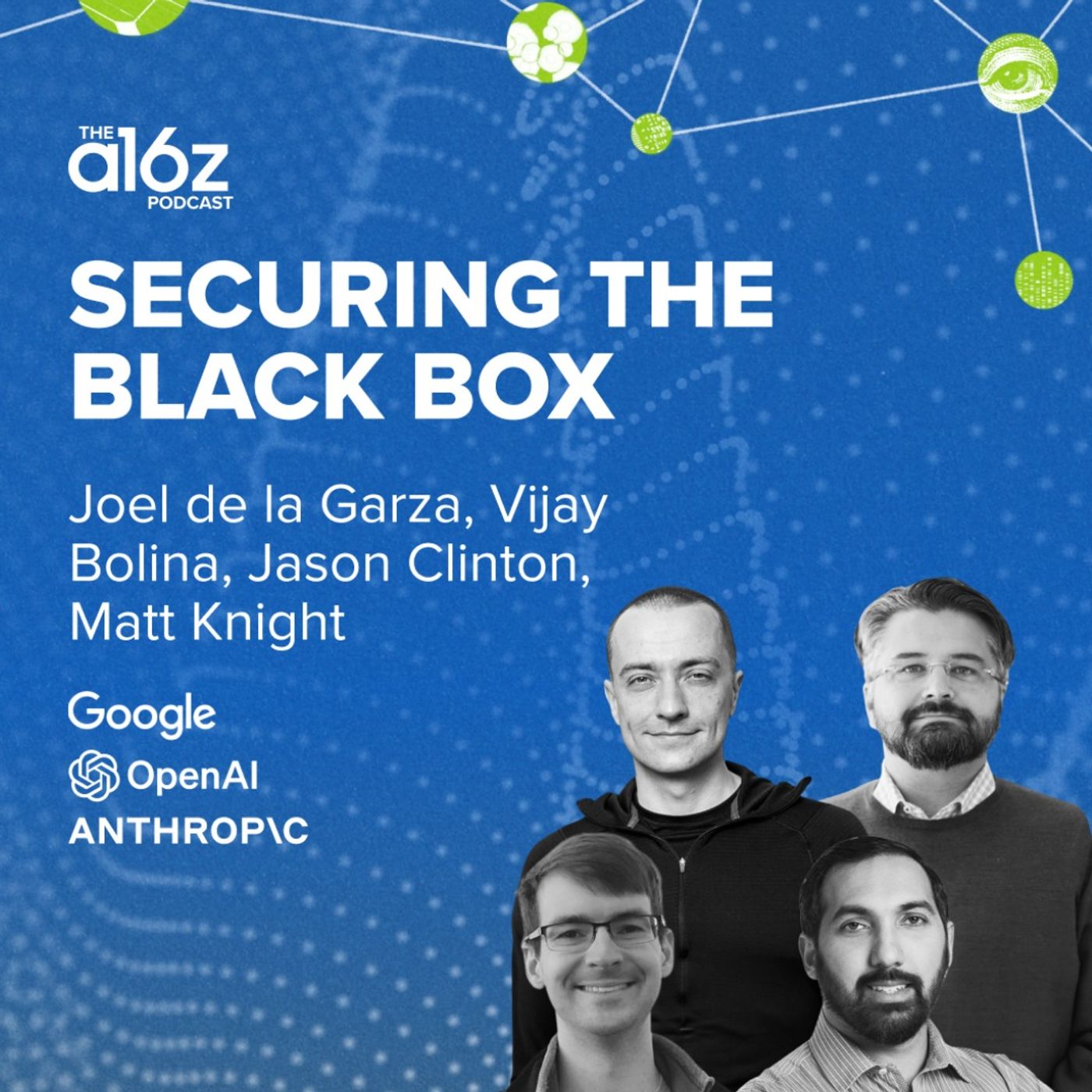
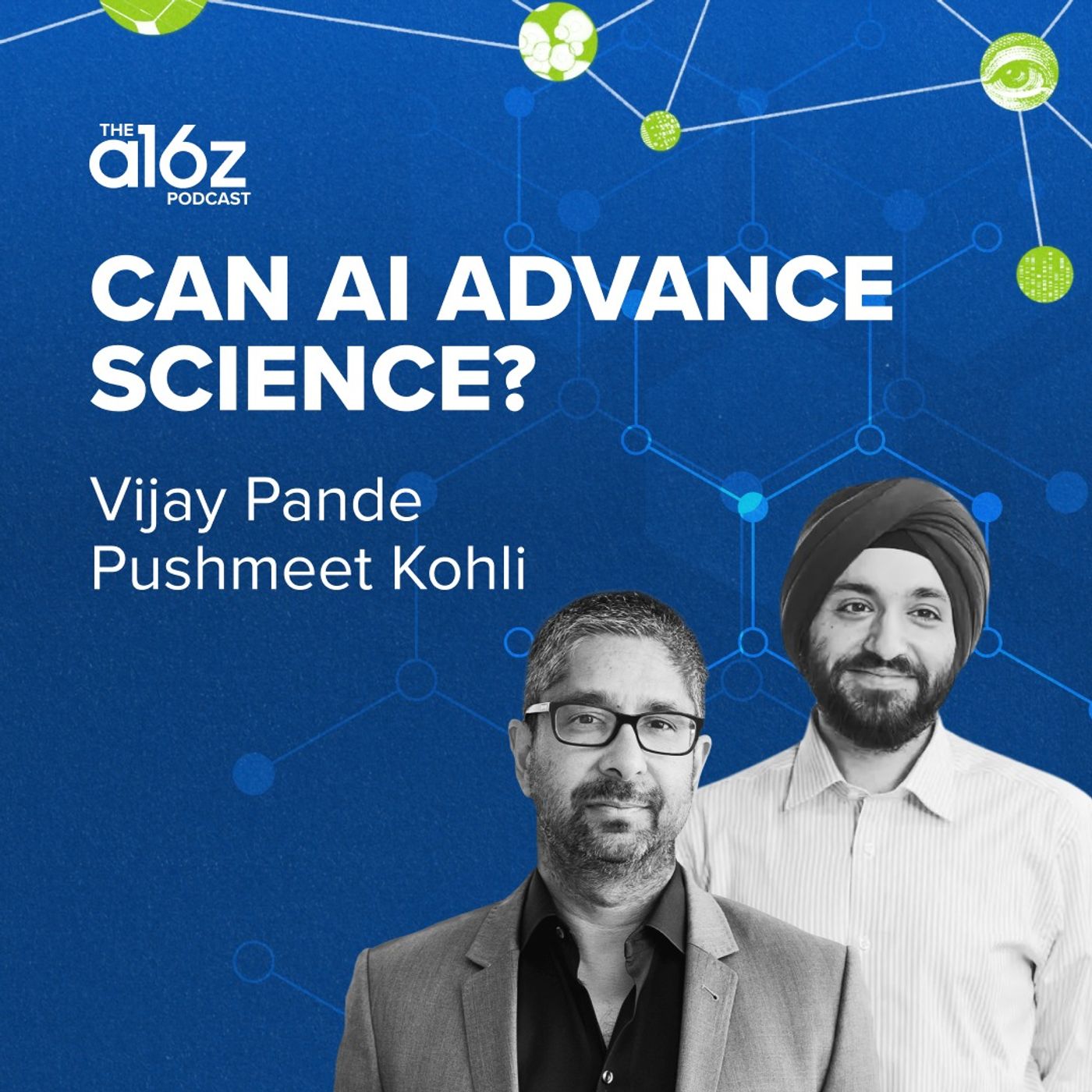

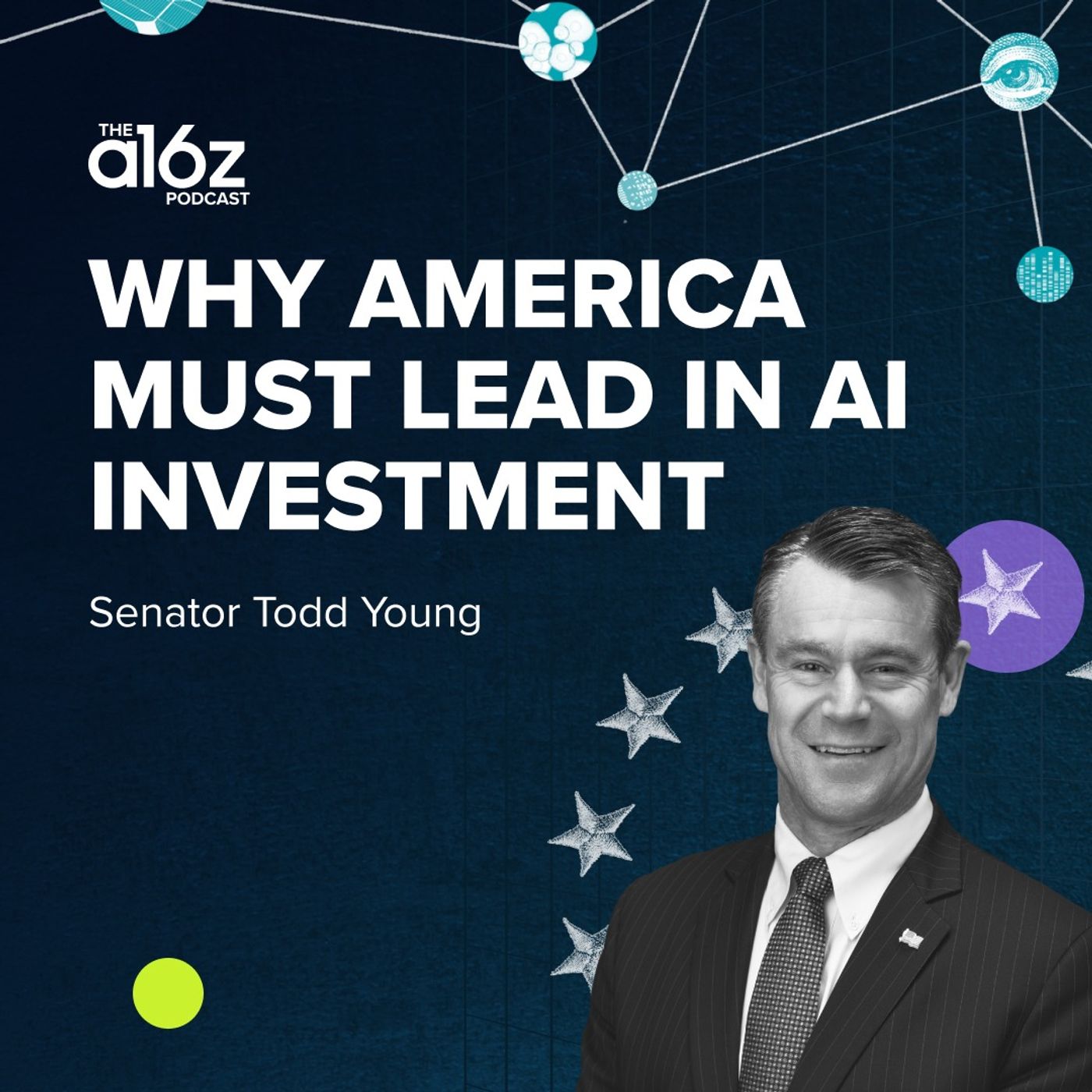
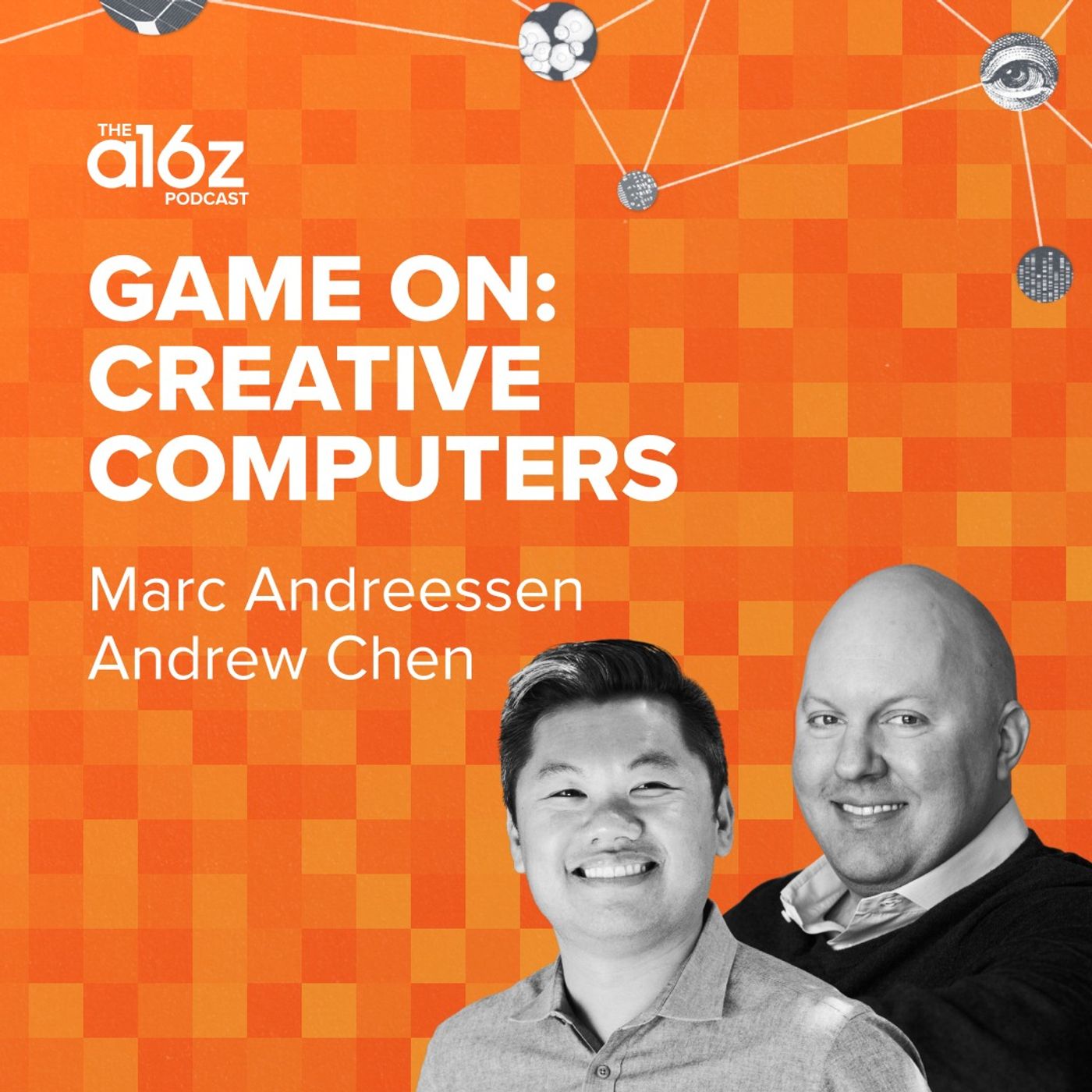
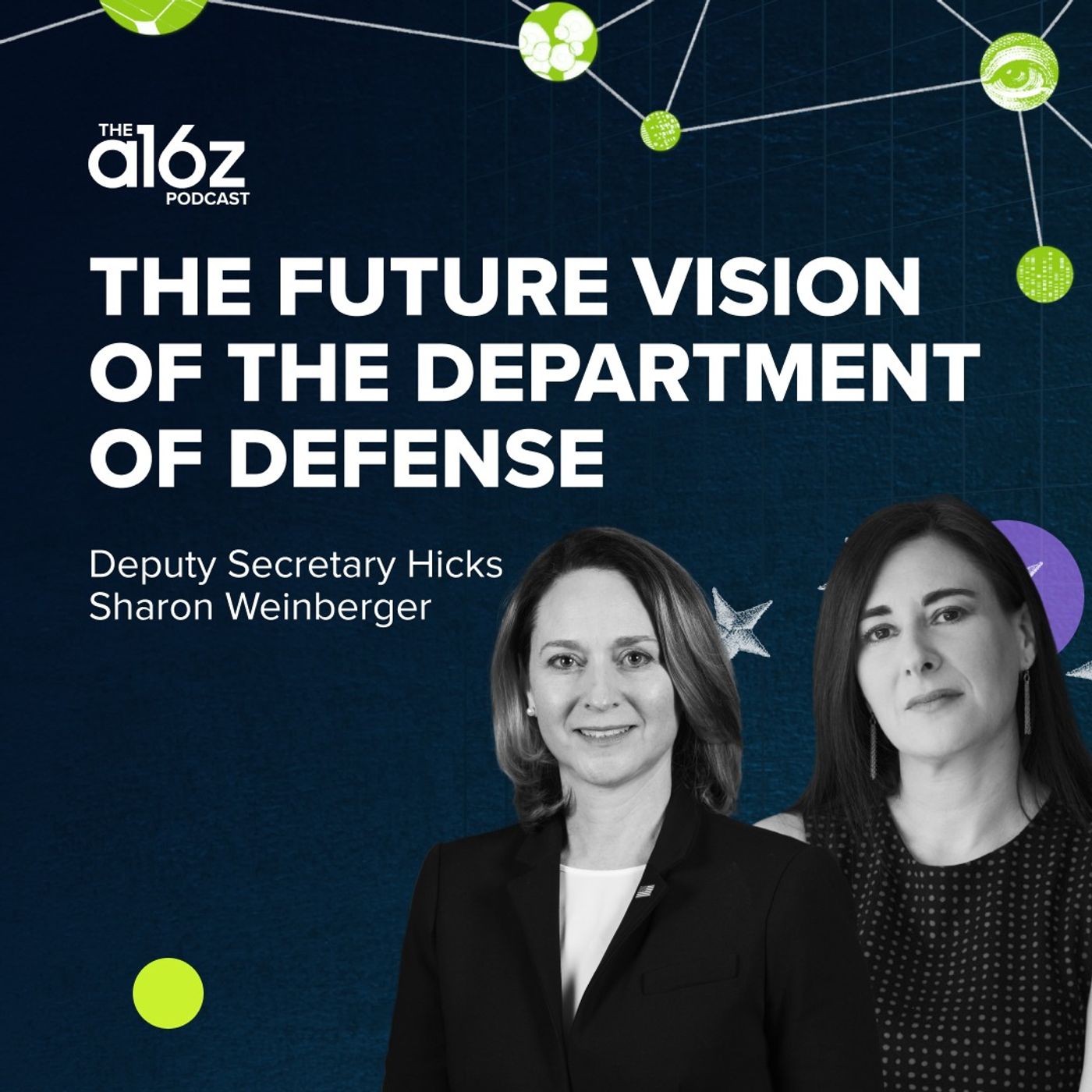
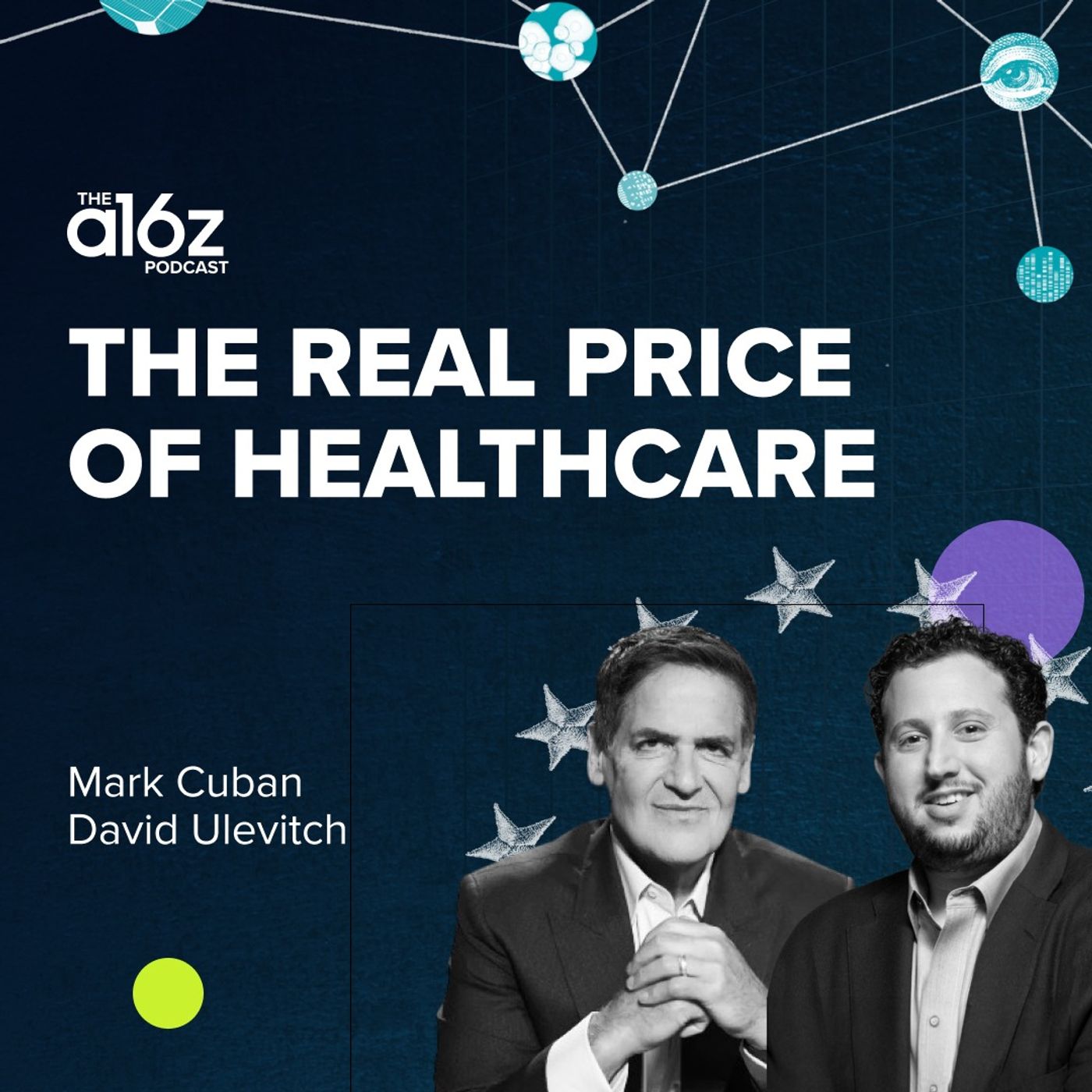
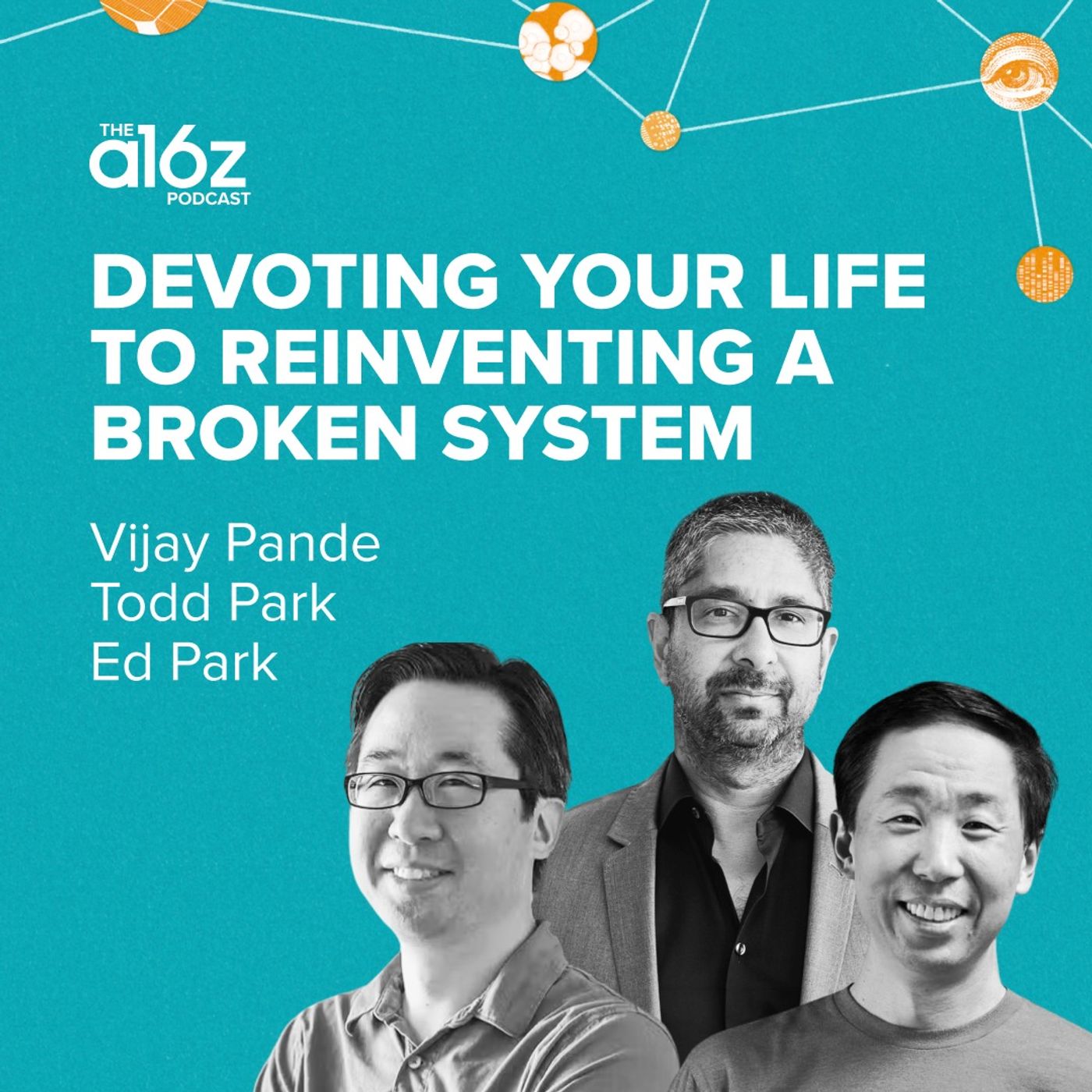
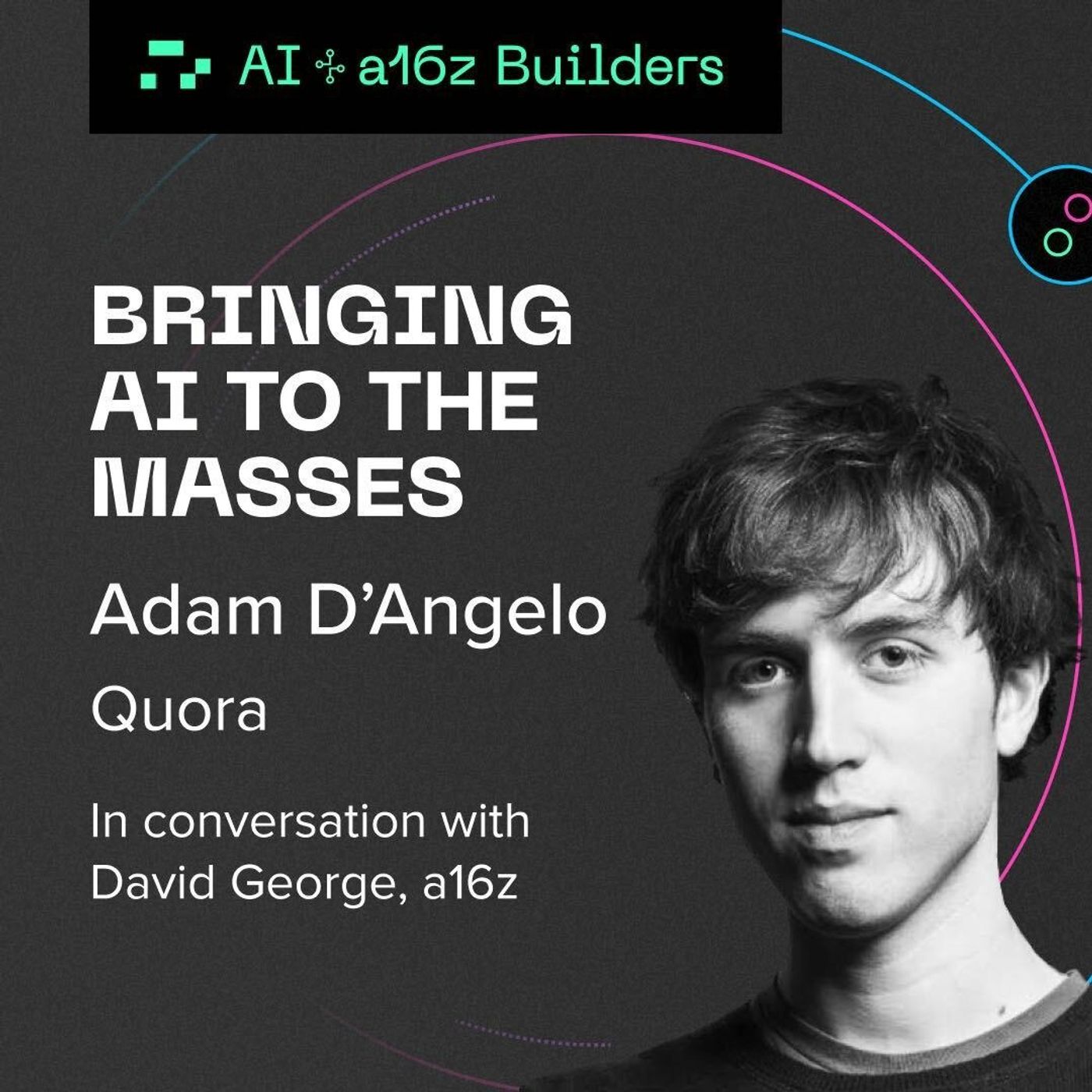
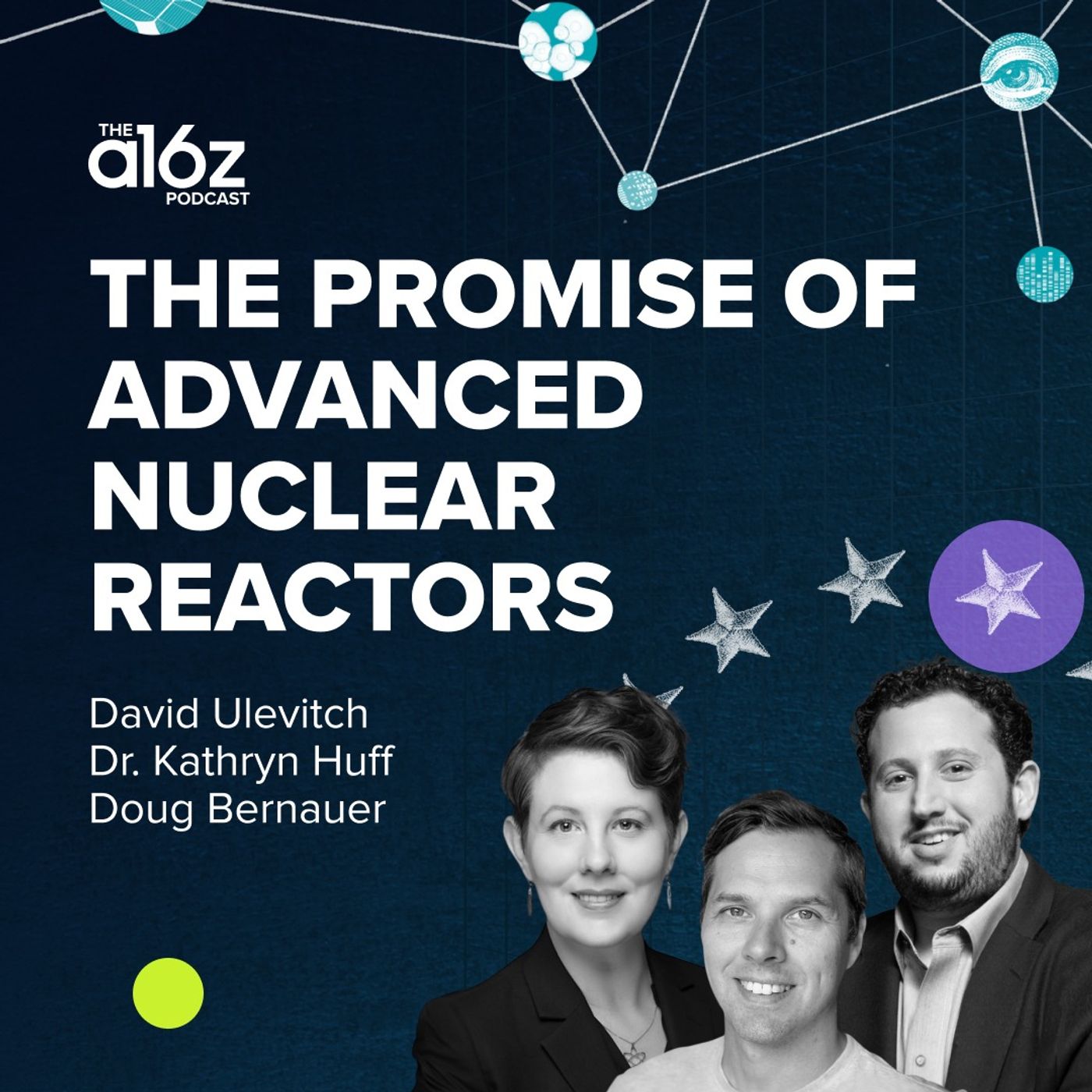
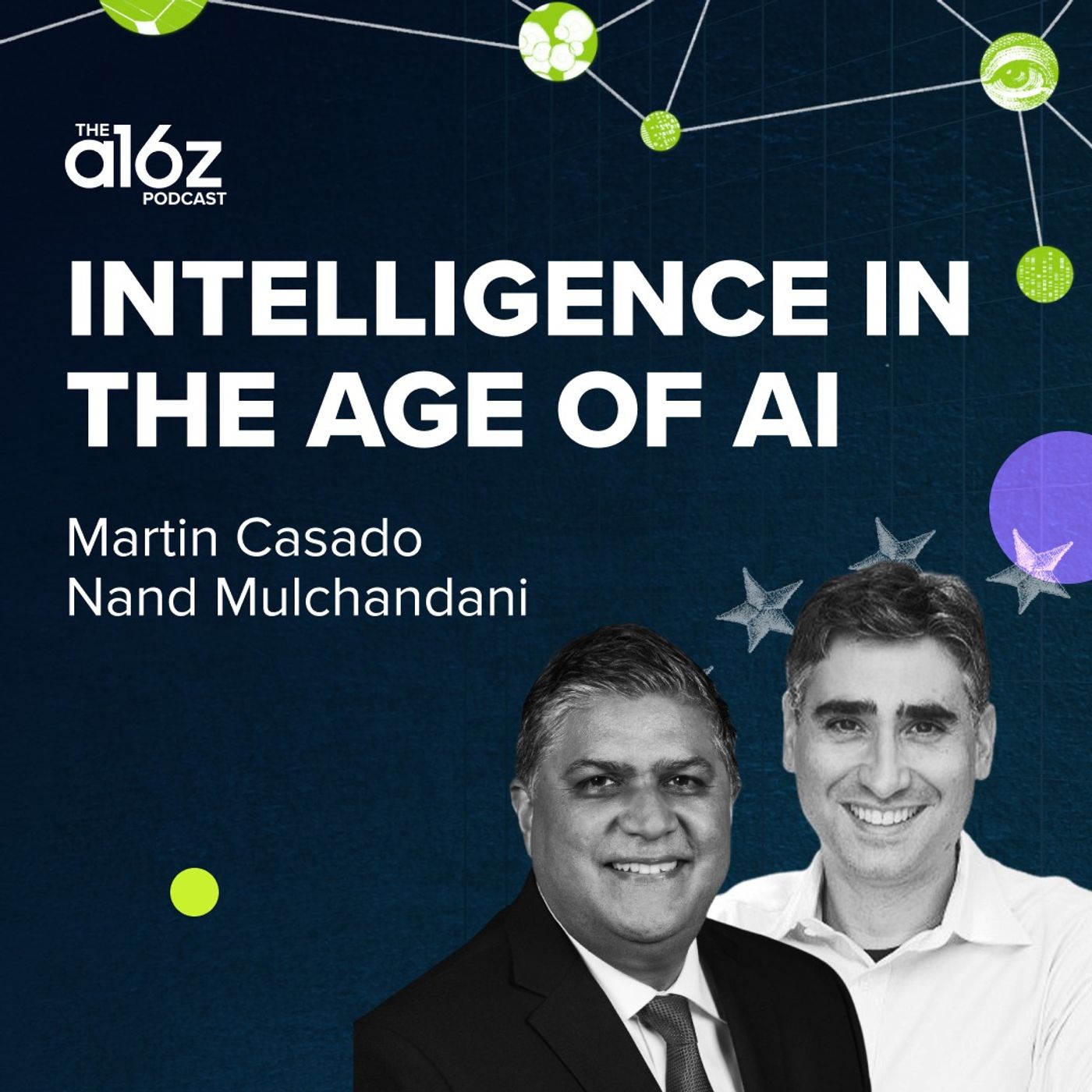
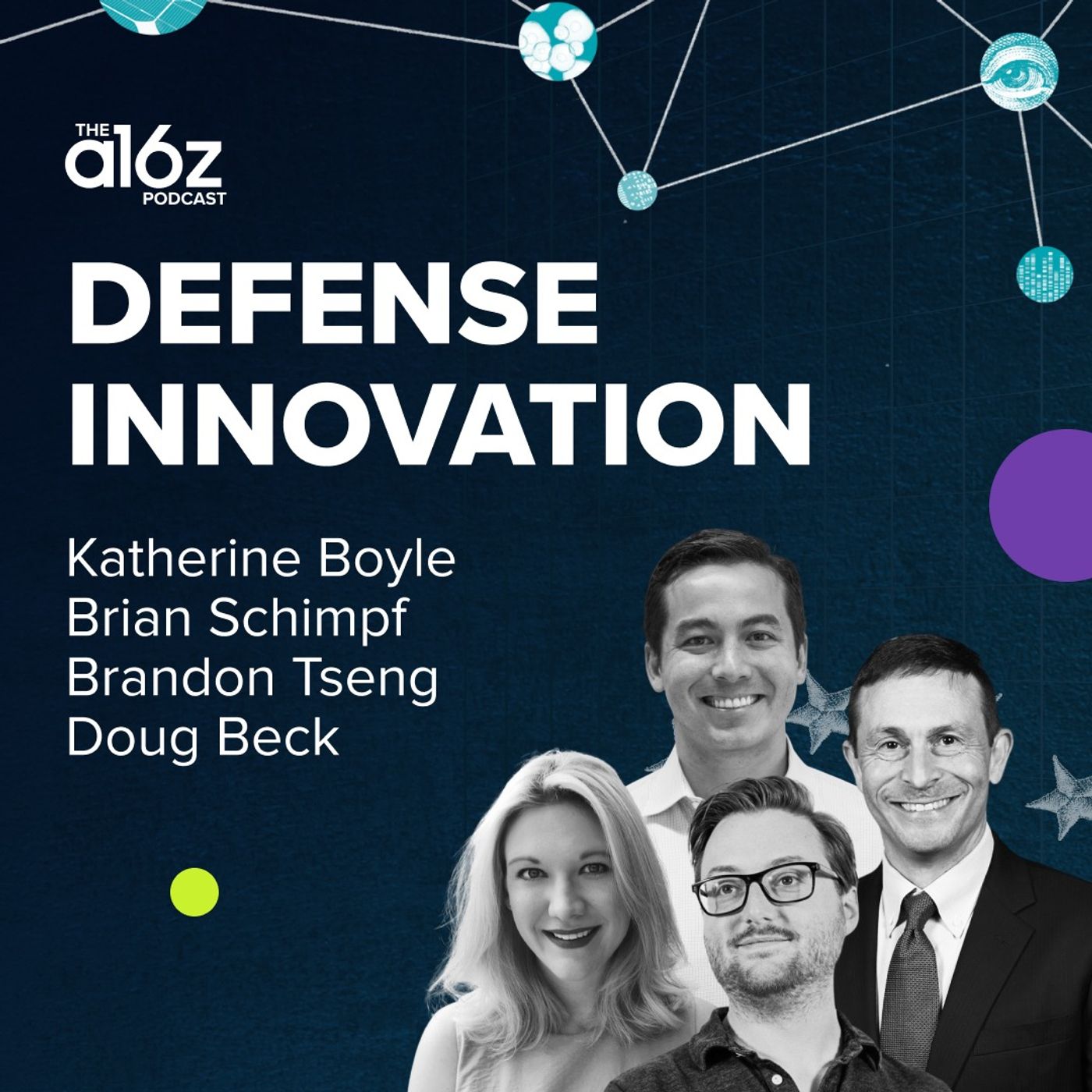
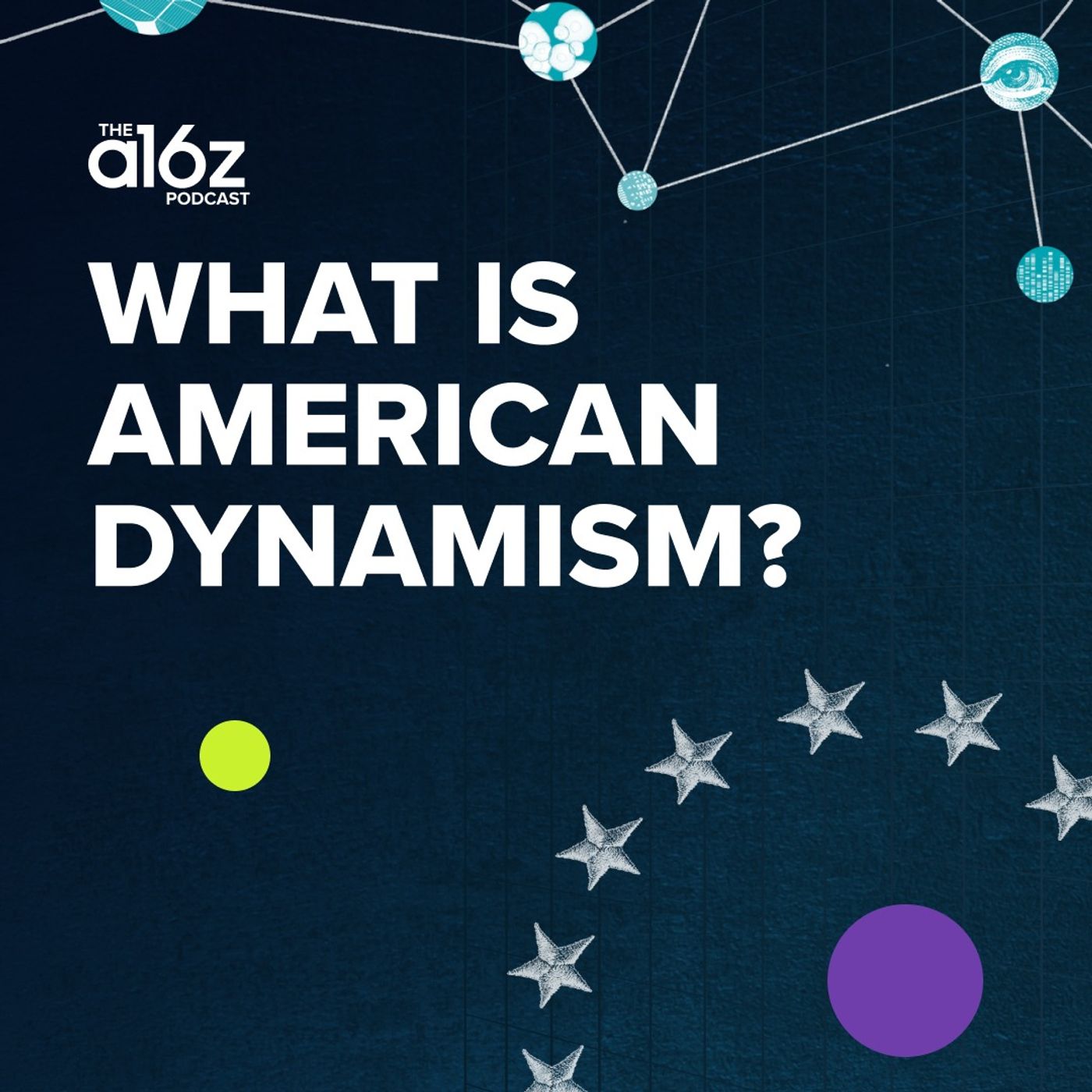
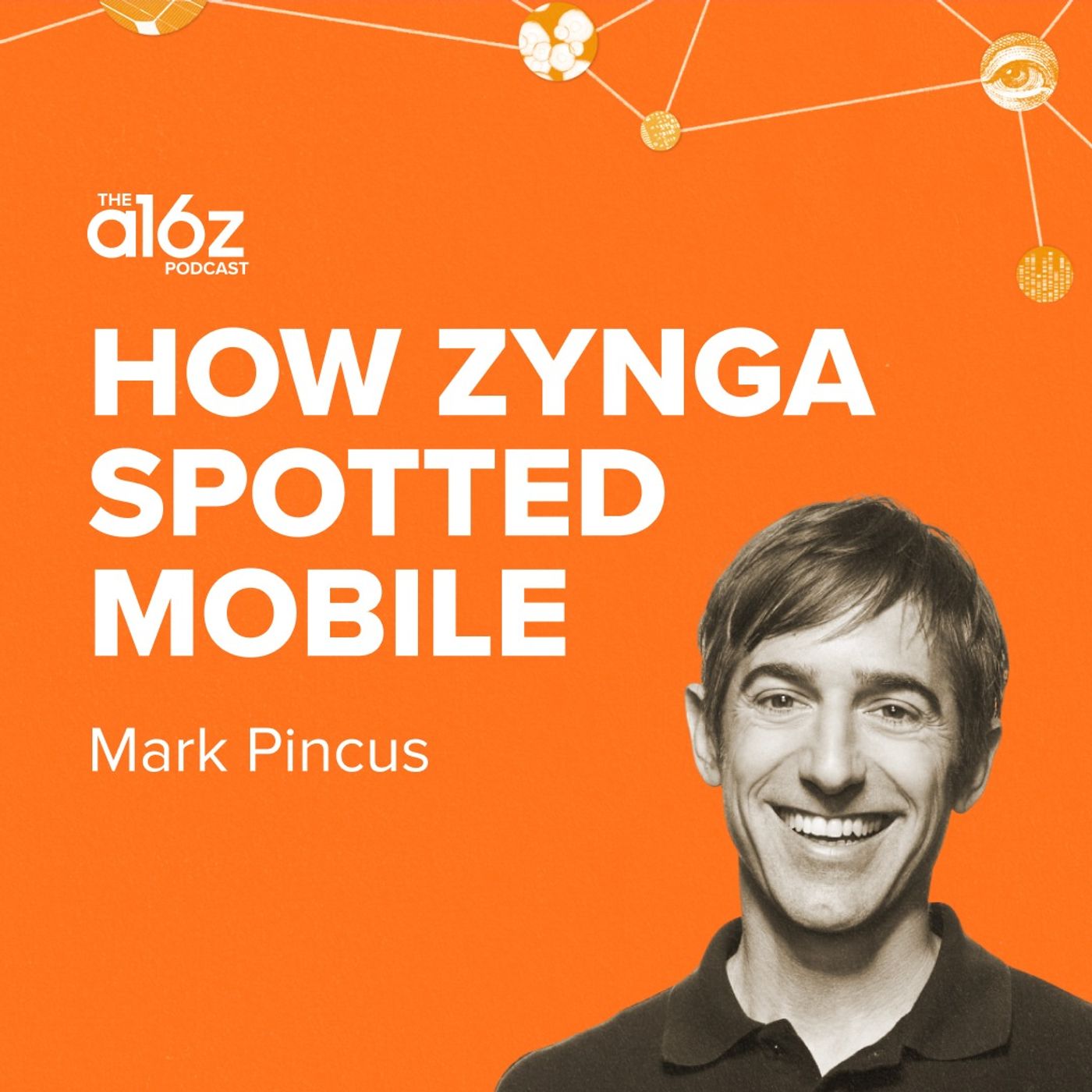

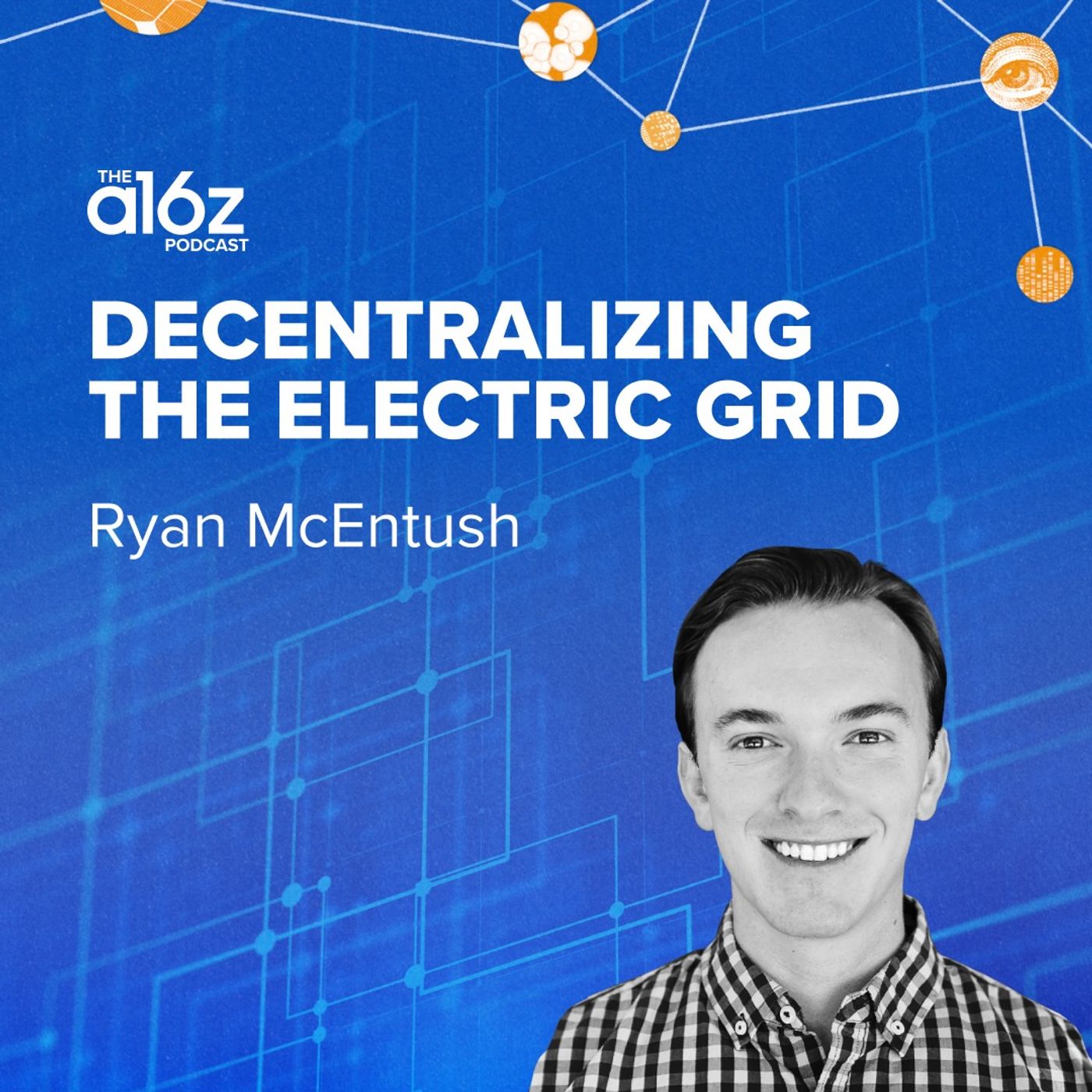
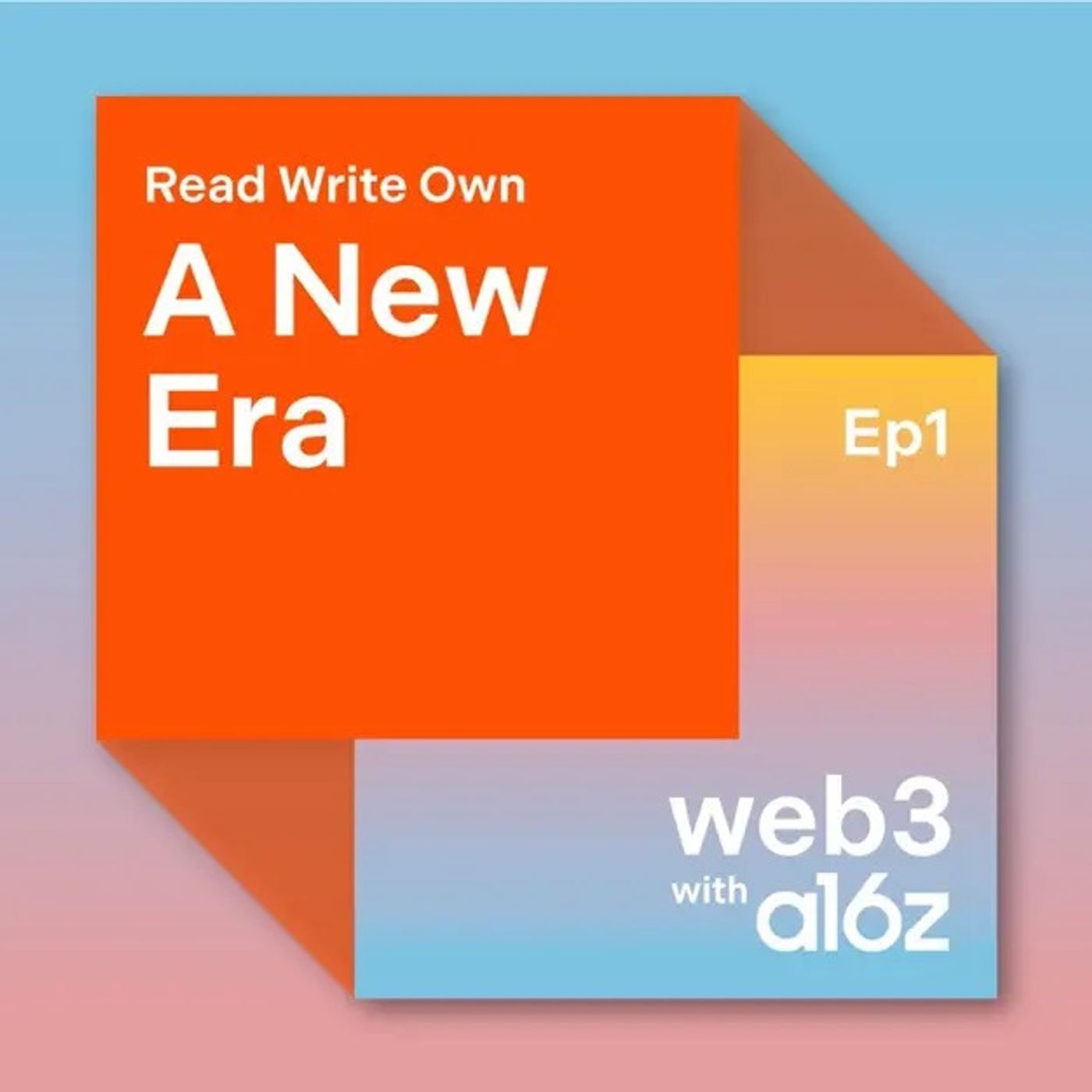
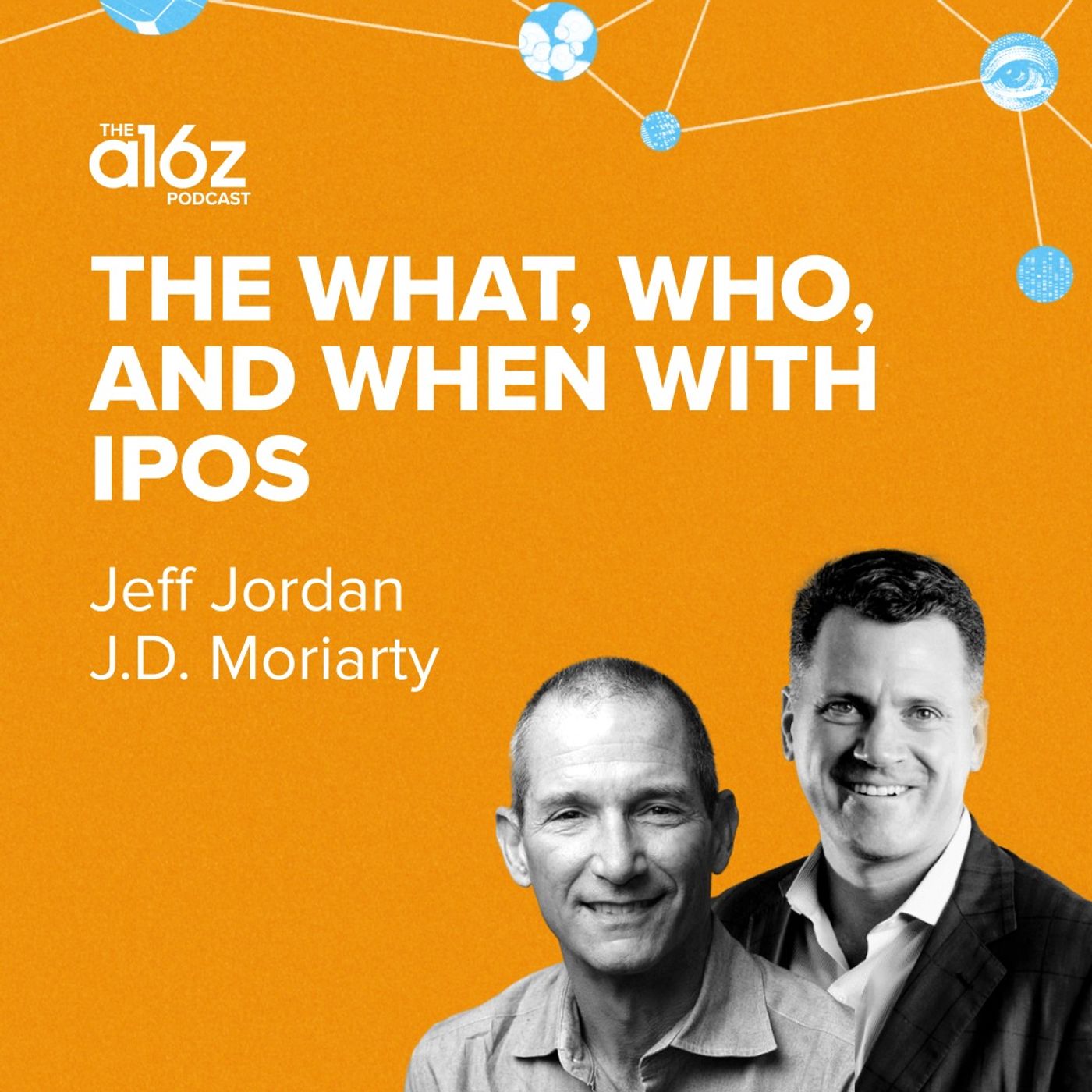



cool
Thanks so much Useful podcast
Hi i love sex my contact)) here https://vipdeit.com/sex21.html
Thanks for this amazing post. I really loved it. Moreover, for any roblox script you can visit, https://deltaexecutors.com/
💚WATCH>>ᗪOᗯᑎᒪOᗩᗪ>>👉https://co.fastmovies.org
The last 6 minutes are gold
what a beautiful podcast. really love this! thank you <3
Really enjoyed the episode on network effects
2018
Always liberating to listen to this pod. The people on the pod are so inspiring and intellectual. And how can I not mention Steph for covering these extremely intriguing topics! The pod has turned out to be one of my favs with the episode with Marc Andreessen where he throws light on the topics of technophobia and moral panic around innovation throughout history. It's a deep dive into the counter force we exert on new tech as a society, and how any technological innovation makes the old systems obsolete. I highly recommend giving this episode a listen. It will blow your mind
I usually love year-end, best of collections but this one was disappointing.
just discovered this podcast. Good perspectives on important topics.
o9 v
The host is talking more than the guest which is annoying. We want to learn from him not from the host. Funny enough it was an episode about science of moderation. Seems like the host should learn from him
the speech of your guest made this episode super difficult to follow, regarding the information he was trying to share. that would be nice to stay on a logical speed in a podcast talk. thank you
Thank you for sharing your valuable solution, it's work properly. https://www.wyndhamrewards.us/
l am laia farshbaf from iran lovely . i like very spead talk ing langhage have reaguest yours help me pl .
Very well covered and explained
loved this episode
With everything going on in the markets today, I would be interested in understanding how a cryptocurrency, driven by a private entity or open source, could influence the public markets, interest rates, and the dispersion of money. Depending on the economic ups and downs, wouldn't there need to be a governing entity, such as the federal reserve?